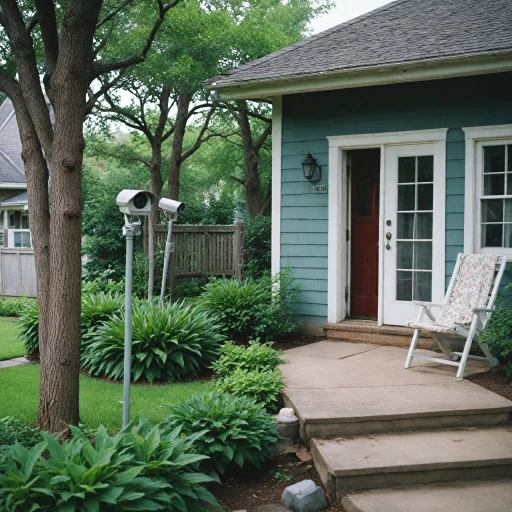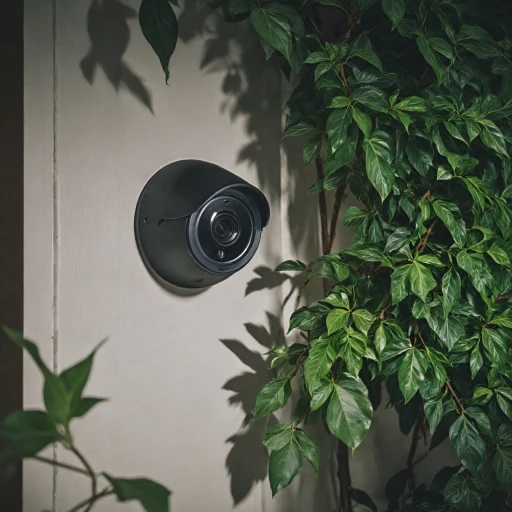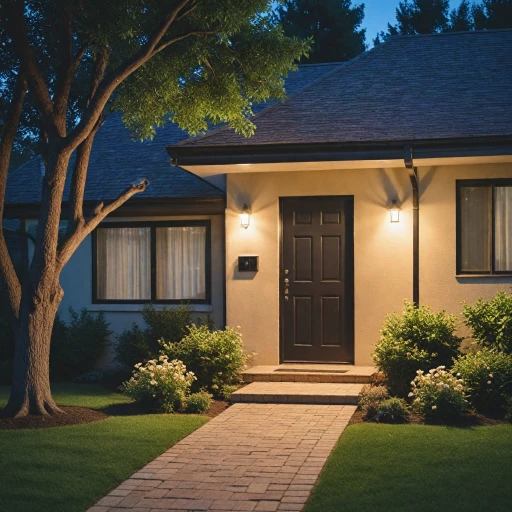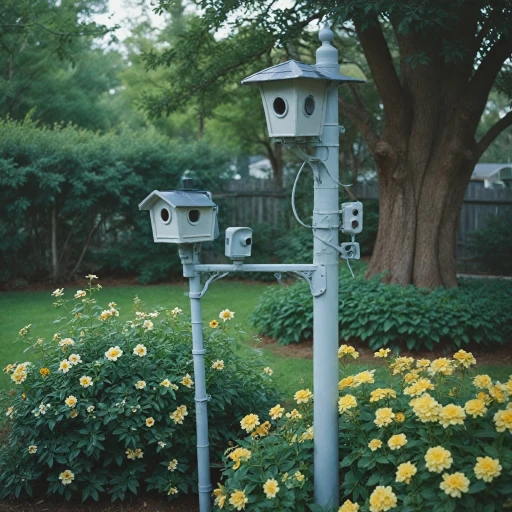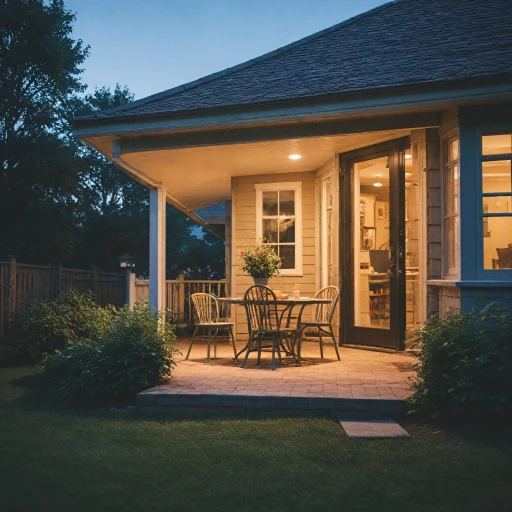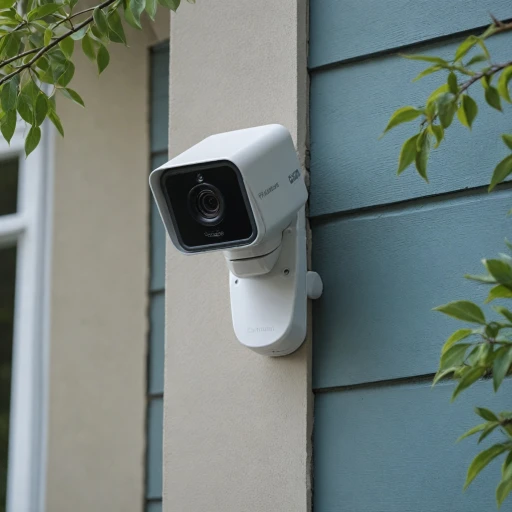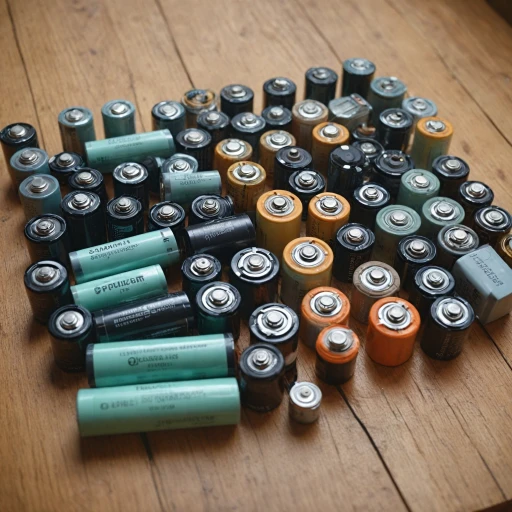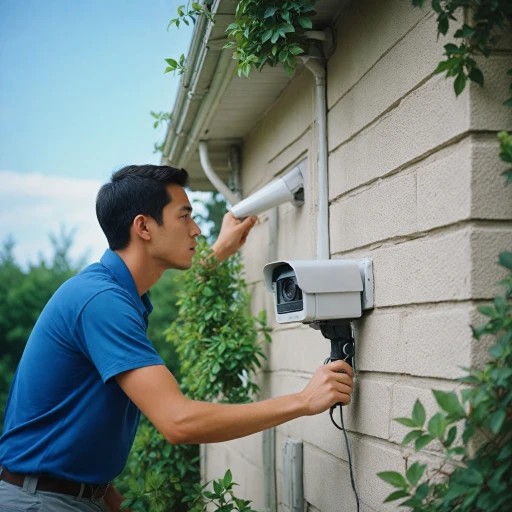
Understanding Non-Wi-Fi Outdoor Security Cameras
Getting Acquainted with Non-Wi-Fi Security Solutions
Outdoor security cameras have become an integral part of home safety protocols, providing vigilant monitoring and helping deter potential intruders. While Wi-Fi-based security cameras are popular, many homeowners are exploring options that operate without an internet connection. Especially in scenarios where a reliable Wi-Fi signal isn't available, such as in rural areas or larger properties, outdoor spotlights can assist non-Wi-Fi security cameras to maintain robust security measures.
Non-Wi-Fi cameras primarily operate using other types of connectivity such as cellular networks or local video storage solutions. These cameras do not rely on the Wi-Fi internet, thus ensuring security coverage even when there's no internet access. Some models come equipped with a sim card slot for cellular data usage, allowing them to function independently. Others utilize local storage options, such as an SD card, to save footage directly without needing to upload data to the cloud.
Additionally, non-Wi-Fi cameras often come equipped with features such as battery backup and motion detection, which further enhance their ability to function autonomously. Eufy Cam, for example, offers robust battery-operated models known for quality video output, while many options available on platforms like Amazon stand out as celebrated choices for best outdoor security solutions without Wi-Fi.
The choice between Wi-Fi and non-Wi-Fi security cameras largely depends on one's specific needs and the available internet infrastructure at the location. As we delve deeper into the advantages, key features to note, and how non-Wi-Fi cameras stack up against their Wi-Fi counterparts, it becomes clear that they offer a compelling alternative to traditional wireless cameras.
Advantages of Using Non-Wi-Fi Cameras
Benefits Derived from Independence from Wi-Fi
Choosing outdoor security cameras that operate without a Wi-Fi connection offers several distinct advantages, particularly for those who prioritize reliability and data security. Here are some compelling reasons to consider non-Wi-Fi options:- Enhanced Security: By opting for cameras without internet reliance, your security system is less vulnerable to potential cyber threats. While Wi-Fi cameras are convenient, they can be exposed to hacking risks if not properly secured.
- Stability and Reliability: Cameras that function without Wi-Fi safeguard against connection disruptions. Power outages or fluctuating internet service won’t affect their ability to monitor and record activities.
- Local Storage: Non-Wi-Fi cameras often use SD cards for data storage. This means recorded footage is saved directly on the device or via an external storage system, such as Eufy's local storage solutions. It lowers dependency on cloud services and helps maintain privacy.
- Battery Operated Options: Many of these cameras are battery-powered, offering greater flexibility in placement as they are independent of power outlets and can be installed in remote areas.
- Variety of Options: Leading brands offer top-notch cameras without Wi-Fi, such as those available on platforms like Amazon. These products showcase features such as motion detection and night vision while providing peace of mind without the need for an internet connection.
Key Features to Look for in Non-Wi-Fi Cameras
Must-Have Elements for Non-Wi-Fi Outdoor Cameras
When exploring options for surveillance cameras that operate without an internet connection, understanding key features becomes essential for making an informed purchase. Here are some critical aspects to examine: 1. Local Storage Options Choosing a security camera with reliable local storage capabilities means you won't miss capturing vital footage. Look for cameras equipped with a microSD card slot or other forms of local storage, ensuring your video data is safely stored on the device itself. 2. Power Source and Battery Life Wireless cameras without internet often rely on battery power. It's crucial to opt for models offering long-lasting battery life, reducing the need for frequent recharging or replacements. Consider alternatives like solar-powered security cameras if available. 3. Motion Detection Quality Motion detection plays a pivotal role in capturing essential video footage, especially during suspicious activities. Look for outdoor security cameras with advanced motion detection technology, as these cameras can efficiently start recording when activity is detected. 4. Night Vision Capabilities Enhanced night vision is a vital feature for outdoor security, allowing cameras to perform reliably in low-light conditions. Cameras with infrared LEDs or lights can provide clear images even in complete darkness. 5. Weather Resistance Outdoor cameras face various environmental challenges. Therefore, ensure that the camera without internet is specifically designed for outdoor use and is both weather-resistant and able to withstand harsh elements. 6. Cellular Connectivity Options Beyond common wireless security options, some cameras can function using a sim card, providing cellular security independent of WiFi. This feature ensures your surveillance is unhindered by internet outages, offering a unique work without wifi solution. By considering these elements, you'll find the best non-WiFi cameras tailored to your security needs. This further also highlights how these features distinguish from their wifi-dependent counterparts, proving their value in diverse scenarios. For more detailed comparisons and options, check out our guide on non-Wi-Fi security cameras.Comparing Non-Wi-Fi and Wi-Fi Cameras
Evaluating Between Wireless and Non-Wireless Outdoor Security
When deciding on outdoor security cameras, you may find yourself choosing between non-Wi-Fi options and their Wi-Fi dependent counterparts. Each type offers unique benefits that cater to varying preferences and needs. Wi-Fi cameras provide convenience and remote access, but they come with certain limitations. Wi-Fi internet dependency can lead to difficulties, especially in areas with weak Wi-Fi signals or if there are concerns over internet privacy. Non-Wi-Fi cameras operate without this reliance, making them advantageous for those worried about network vulnerabilities. Working without internet, non-Wi-Fi outdoor cameras use local storage, such as an SD card, to store video footage. This can efficiently secure your data without a cloud subscription. They are often favored in situations where a stable internet connection isn't feasible. Though not internet-based, many non-Wi-Fi security cameras, like the popular Eufy Cam, operate as wireless cameras powered by batteries or cellular networks with a sim card. Their robustness against Wi-Fi failures makes them reliable when uninterrupted surveillance is crucial. Additionally, a non-Wi-Fi option like a cellular security camera offers better flexibility in areas where Wi-Fi is unavailable. This type of camera can still reliably communicate motion alerts and video data via cellular networks. In contrast, choosing Wi-Fi security cameras means easy integration with existing smart home setups and seamless app access for live feeds and motion alerts. However, they require a stable internet to function optimally, which can be a constraint. Overall, opting for the best security cameras depends on what aligns with your security needs. Assessing your environment and connectivity will help you decide between Wi-Fi dependency and independent solutions like non-Wi-Fi outdoor security cameras with built-in local storage and possible night vision capabilities.Installation Tips for Non-Wi-Fi Cameras
Installing Your Non-Wi-Fi Outdoor Camera System
Setting up a non-Wi-Fi outdoor security camera involves a unique process distinct from Wi-Fi cameras, given that the connection does not rely on a wireless internet setup. Here are some practical installation tips to ensure your cameras work efficiently and maintain robust security.
- Location Planning: Position your cameras in areas that cover all entry points, pathways, and any vulnerable zones you need to monitor without interference.
- Reliable Power Source: Ensure that your chosen location has easy access to a power source. If you're using battery-powered security cameras, keep an eye on the battery levels for consistent performance.
- Sim Card and Cellular Compatibility: For cameras using cellular connections, make sure the SIM card is properly inserted and activated. Confirm your cellular plan can handle the data requirements for your camera’s video storage needs.
- Physical Security: Safeguard your cameras against theft or damage with secure mounts. Consider protective casings if your area is prone to harsh weather conditions.
- Night Vision and Motion Detection: Adjust the night vision settings and test the motion detection sensitivity to avoid false alarms. Ensure that these features work without relying on internet networks.
- Local Storage Options: Opt for cameras with built-in SD card slots for data storage without internet dependency. Regularly back up this data to prevent loss in case of damage or theft.
Following these suggestions, you will find that installing and maintaining non-Wi-Fi cameras aligns with keeping your property secured efficiently. Stay informed about the best practices for your security devices to ensure ongoing protection and peace of mind.
Top Non-Wi-Fi Outdoor Security Cameras on the Market
Leading Non-Wi-Fi Security Camera Picks
When it comes to choosing the best outdoor security cameras that operate without relying on Wi-Fi, there are several options to consider. These cameras provide a wealth of features for comprehensive surveillance without the need for an internet connection. Here's a look at some top-rated non-Wi-Fi cameras that are available on the market today:
- EufyCam Outdoor Security Cameras: These wireless cameras are renowned for their battery life, longevity, and dependability. Equipped with local storage options, Eufy cameras can operate without Wi-Fi and offer high-definition video recording capabilities, alongside motion detection features.
- Cellular Security Cameras: Leveraging cellular technology, these cameras function with a sim card instead of relying on Wi-Fi, making them ideal for areas with limited internet access. Many such models also include night vision capabilities for around-the-clock security.
- Battery-Powered Surveillance Cameras: Designed to offer flexible placement options, these wireless security cameras work without needing internet access. With the advent of smart battery technology, these devices ensure reliable video surveillance, capturing every motion without being tethered to a power outlet.
Each of these camera types brings its unique strengths, whether it's focusing on extended battery life, superior motion detection, or the convenience of being cellular. As you explore these options, consider your specific security needs, such as whether you require local storage or additional nighttime monitoring capabilities.




